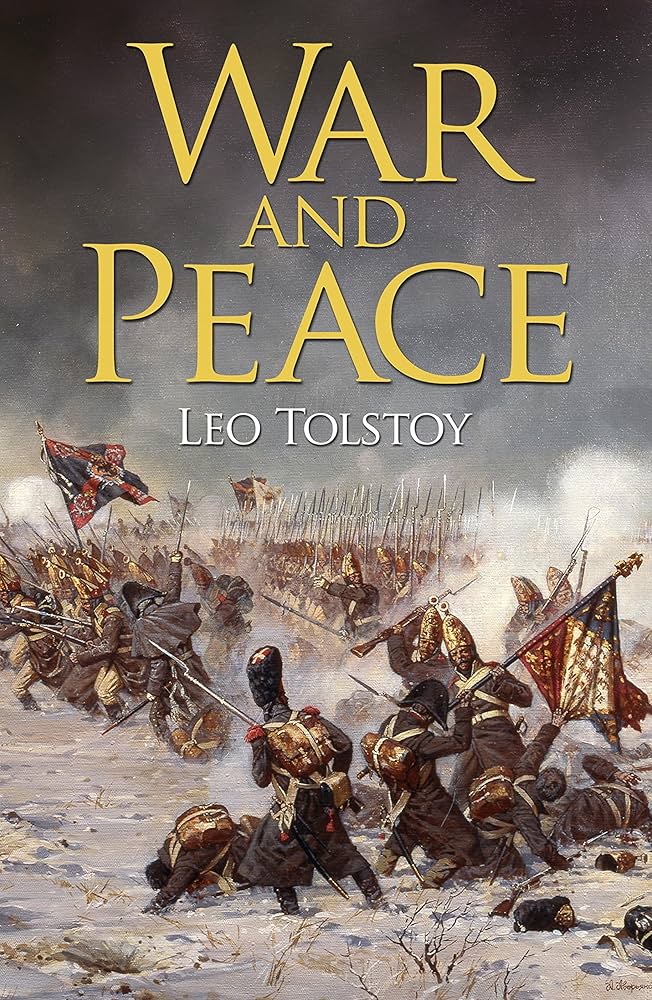War and Peace

About the Book
War and Peace is set during the Napoleonic Wars, and it comprises both a fictional narrative and chapters in which Tolstoy discusses history and philosophy. An internationally praised classic of world literature, War and Peace chronicles the French invasion of Russia and its aftermath during the Napoleonic era. It uses five interlocking narratives following different Russian aristocratic families to illustrate Napoleon’s impact on Tsarist society. Tolstoy said that the best Russian literature does not conform to standards and hence hesitated to classify War and Peace, saying it is “not a novel, even less is it a poem, and still less a historical chronicle”. Large sections, especially the later chapters, are philosophical discussions rather than narrative.
(https://en.wikipedia.org/wiki/War_and_Peace)
Review
(WIP) Reading ongoing
Selected Interesting Ideas in the Book
-
On the twelfth of June, 1812, the forces of Western Europe crossed the Russian frontier and war began, that is, an event took place opposed to human reason and to human nature. Millions of men perpetrated against one another such innumerable crimes, frauds, treacheries, thefts, forgeries, issues of false money, burglaries, incendiarisms, and murders as in whole centuries are not recorded in the annals of all the law courts of the world, but which those who committed them did not at the time regard as being crimes. What produced this extraordinary occurrence? What were its causes? The more we try to explain such events in history reasonably, the more unreasonable and incomprehensible do they become to us. We are forced to fall back on fatalism as an explanation of irrational events (that is to say, events the reasonableness of which we do not understand). […] Thus, question of what causes historic events another answer presents itself, namely, that the course of human events is predetermined from on high—depends on the coincidence of the wills of all who take part in the events, and that a Napoleon’s influence on the course of these events is purely external and fictitious. (Book III, Part I: 1812, I)
-
In historic events the so-called great men are labels giving names to events, and like labels they have but the smallest connection with the event itself. Every act of theirs, which appears to them an act of their own will, is in an historical sense involuntary and is related to the whole course of history and predestined from eternity. (Book III, Part I: 1812, I)
-
Each man lives for himself, using his freedom to attain his personal aims, and feels with his whole being that he can now do or abstain from doing this or that action; but as soon as he has done it, that action performed at a certain moment in time becomes irrevocable and belongs to history, in which it has not a free but a predestined significance. (Book III, Part I: 1812, I)
-
There are two sides to the life of every man, his individual life, which is the more free the more abstract its interests, and his elemental hive life in which he inevitably obeys laws laid down for him. Man lives consciously for himself, but is an unconscious instrument in the attainment of the historic, universal, aims of humanity. A deed done is irrevocable, and its result coinciding in time with the actions of millions of other men assumes an historic significance. The higher a man stands on the social ladder, the more people he is connected with and the more power he has over others, the more evident is the predestination and inevitability of his every action. History, that is, the unconscious, general, hive life of mankind, uses every moment of the life of kings as a tool for its own purposes. (Book III, Part I: 1812, I)